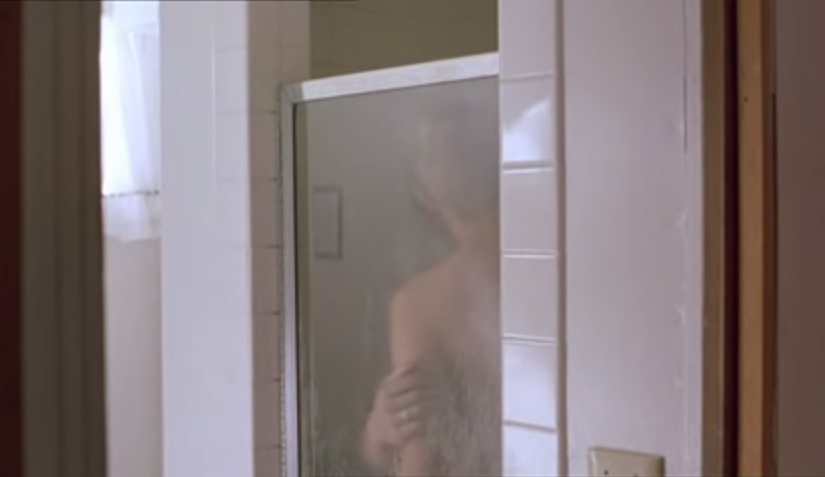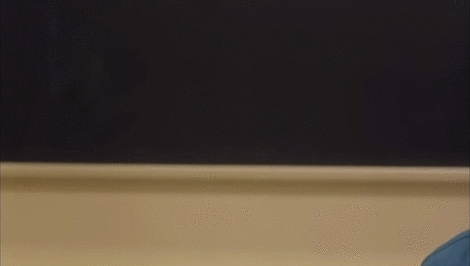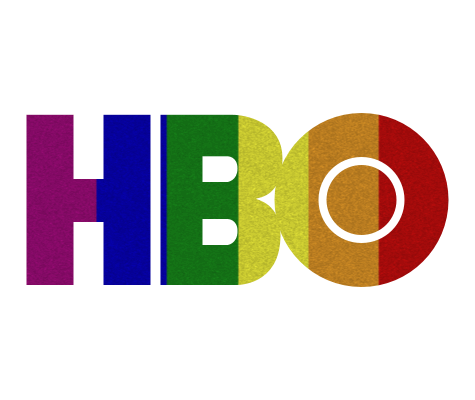HBO’s LGBT History: Elephant (2003)
 Wednesday, August 12, 2015 at 3:30PM
Wednesday, August 12, 2015 at 3:30PM
Manuel is working his way through all the LGBT-themed HBO productions...
Last week we praised Tom Wilkinson and Jessica “Patron Saint of Hand Acting” Lange in the 2003 trans film, Normal, which feels oddly timely what with I Am Cait, and Transparent covering similar territory a dozen years later. This week we look at the Diane Keaton (!) produced film, Elephant, Gus Van Sant’s fictional take on the Columbine High School massacre.
Using mostly non-professional actors and featuring dizzying long-takes to make you feel the passing of time leading up to the horrific events at a high school in Portland, the film is not immediately or easily catalogued as an “LGBT” film, but it makes for a fascinating entry into our long-running project, given both its director and its oblique treatment of homosexuality. [More...]
Elephant (2003)
Written & directed by: Gus Van Sant
Starring: Alex Frost, Eric Deulen, John Robinson, Elias McConnell, Nathan Tyson and Carrie Finklea.
Elephant is hard to watch. Intentionally so. Van Sant’s film is recursive and unflinching. It offers you a slice-of-life mosaic portrait of a non-distinct high school in the United States blithely unaware of why it’s at the mercy of Van Sant’s gaze: an artsy photography student takes and develops some pictures, a jock walks around the school and meets up with his girlfriend, three girls gossip and chat over lunch, a mousy girl arrives at the library, two loners in camo gear approach the school with rifles and explosives ready to wreak havoc. The mundanity of those first handful of characters make the appearance of the two shooters (and the ensuing violence they stage) that much more traumatic. Rather than build up to it, Van Sant’s film encircles his film towards it. We could say Van Sant’s camera treats its subjects with an impersonal, almost uninterested, lens were it not so enthralled with their own mundanity, but the film’s refusal to privilege any of them or their own petty storylines adds to a sense of impending danger that neither framing nor plot development will prepare you for.
So, why include Elephant in an LGBT history of HBO Films?

“Well this is it. We're gonna die today. I've never even kissed anyone before, have you?”
Well, there’s that. And yet, this chaste and obliquely shot kiss between the two boys who then go on a shooting rampage doesn’t quite add up to much. Van Sant’s camera refuses us access to Eric and Alex’s faces and reactions: does it signal a budding romance or merely a belated attempt at intimacy? Much like everything else in the film it is intentionally devoid of context. Were it the only scene in the film concerned with homosexuality, we might be quick to frame this moment as an attempt to further “other” both shooters, pointing to their burgeoning (or repressed?) homosexuality as indicative of their other abnormal tendencies. The film ends, after all, with a sensitive, young ‘artist’ about to kill the archetypal heterosexual couple of the piece. Isn’t this the allegorical death-driven gay male figure society fears?
But, this is a Van Sant film, one which gives us a lengthy scene at the school’s Gay Straight Alliance meeting, so such a facile conclusion is hard to make.

Seen as a 360-shot, with its revolving camera indifferently surveying the various GSA members, the scene is concerned with the seemingly banal question: Can you tell if someone is gay just by looking at them? The answers are surprisingly nuanced, hinging as they do on what we can and cannot know about a person by just looking at them, unwittingly alerting us to the very rhetoric that usually gets deployed when dealing with gun massacres like the one depicted in the film: who’d have thought that a frustrated if seemingly sensitive piano-playing student would be planning mass murder? How, to borrow one GSA student’s answer, would one have been able to “know their spirit”?
Van Sant offers no easy answers. His film is content with merely following its subjects and then, just as suddenly, slipping away; we’re not even offered a tidy conclusion to the day’s events. We arrive in media res and exit the same way. His frank and unsentimental depiction of gay youth marks Elephant as an anomaly among the recent films we’ve looked at: there’s no heightened emotional drama to frame these characters as in Alan Ball’s Six Feet Under, and no socio-cultural framework to help understand this community as we had in The Laramie Project. In this it stands alone in treating its characters (gay or straight) with the same indifferent gaze; therein lies its transgressive and refreshing sensibility, because boy is it unlike anything we've looked at on here.


Awards Fun Fact: The 2003 Cannes Film Festival jury awarded Elephant the Palme d’Or and Gus Van Sant their Best Director prize. And while I understand why Van Sant’s film didn’t feature into any Oscar conversations, that still won’t stop me from saying that Harry Savides’s cinematography (which won the New York Film Critic’s Circle award and was nominated for an Indie Spirit Award) should really have also made the Academy’s shortlist, especially since it was surprisingly open to first-time nominees that year.




Reader Comments (15)
What a terrific film, thank you for this writeup. I'm a huge fan of Van Sant's death trilogy with, in my opinion, this being the strongest of the bunch.
I loved the filmmaking in Elephant. Both times I've seen it. However, having read Dave Cullen's brilliant book, Columbine, it bothers me a little that Van Sant didn't feel an ethical responsibility to be more accurate about the depiction of Eric and Dylan. I always felt the suggestion they were either curious about their homosexuality or were in fact homosexuals to be lazily handled. There is no suggestion of that in reality (Eric does describe his lust for women in his journal). If Van Sant wanted to add some complexity to his characters by presenting their sexual frustration a source of their inner demons, I believe he failed in that regard, since the way he presents the scene seems so apathetic and nonchalant that it definitely didn't convey any turmoil. If anything, they seemed completely comfortable with it. I personally believe the scene to be completely unnecessary and the weakest point in the movie.
I'll start by saying that Elephant is an unforgettable, affecting piece of filmmaking.
For me, the gay kiss scene doesn't add layers of interpretation but removes them. The GSA scene seems to foreshadow: "Look at all the support that's available to these misunderstood gays, if they'd accept it. Look at the destruction they're wreaking on the people who would help them accept themselves."
It's offensive the same way it'd be offensive if someone made a Movie Theater Shooting drama and cast a black guy as the shooter. It's contrary to what we know (and knew then) about mass shootings: They're vastly committed by unstable, maladjusted straight white men. Rumors about the Columbine shooters' sexuality have been debunked as thoroughly as it's possible to debunk them. Repeating them in fiction advances a harmful narrative about predatory queers.
As someone else said, the characters seemed totally comfortable and at ease in that scene. It didn't seem ambiguous at all to me that they were meant to be gay.
I wish I were more persuaded by this, but I still think the shower/kiss scene stands out for exactly the wrong reasons. In a film so devoid of context, the glimpses we get of the eventual shooters stand out all the more - which is why I have always thought this film DOES go for the easy answers, with the shower moment particularly egregious. Repression, an obligatory scene of them playing violent video games... It's all pretty lame.
Furthermore: indifference doesn't strike me as a terribly bold or necessary stance here. A lot of violent or true crime films assume that objectivity is an excuse for not having anything to say; I'm thinking also of things like "Snowtown". "Elephant" isn't gratuitous the way some other films of this ilk are, but it never provides a reason for itself, either.
Truly, I've been enjoying this series, I just strongly dislike this particular film.
I love this movie. So atmospheric and naturalistic. Great write-up.
I've never so intensely loved and hated individual patches of the same film. There are so many sublime, poetic images and sequences... And then someone speaks.
The acting and dialogue are unforgivably atrocious. Ditto all those Issues Of The Times scenes like the one with synchronised vomiting, which feel like angsty, pseudo-arty equivalents of Helen Lovejoy screeching "Won't somebody please think of the children?!!"
I LOVE THIS MOVIE! Always thought it was weird that nobody ever made the point that Diane Keaton is credited as a producer...
It's one of my favorite films by Van Sant though for me, it is the weakest film of his Death Trilogy but still one of his most essential films.
I really like this film and own it although I haven't watched it in a while. I love the way that the tracking shots sort of merge in to one another. We will be following a character, who will walk past another character, and then the camera starts to follow the other character. The dialogue doesn't bother me because it's the sort of inane things you hear in a high school.
To me the kiss isn't 'gay' as such. I just think it's a moment of intimacy and vulnerability because they know that they will probably die, and to show the audience a different side to the boys rather then just the ruthless killers. When I was in my young teens I had a very good friend, and we did a similar thing once or twice. I turned out gay but he didn't. So I don't have much of a problem with the kiss.
I think this movie is extraordinary - by that word's very definition, actually. It was in my top ten of the decade and I think it's Van Sant's greatest achievement. Always good to see writing about it - I wrote about it recently, comparing Van Sant's ELEPHANT to Alan Clarke's ELEPHANT and other shooting violence in Hollywood pictures. -> http://junkee.com/post-charleston-hollywoods-complex-relationship-with-gun-violence-is-more-fraught-than-ever/59848
I think the gay kiss scene is exactly as others have said, yet entirely different. It's another "excuse" sequence to put further credence to the "we don't know anything, really" idea to shootings. Gay, bullies, violent video games... take your pick. It's nothing and it's everything. Even without it - or with it and not the student discussion scene - I still think the film would read as remarkably queer though. It's notsomuch gay, but queer. If that makes sense.
Thank you for this writeup. I will never forget the day I saw the film in theater.
Great write up! I've always liked this film, but the shower scene kind of bothered me because it was the one part of the movie where I wanted to know more about how they got there. I was perfectly fine with the lack of context everywhere else but there. Still, it's probably the most memorable scene of the entire film.
I'm with Glenn on this one; I actually think the shower scene (in its throw-away-ness) attempts to tell us a lot and yet tells us nothing. Much like the film itself it's almost annoyingly obfuscating; yes we want to know more about these kids and why they do what they do, but that seems uninteresting to Van Sant. I really don't think the takeaway is "oh they're gay." Even the way that piece of dialogue is delivered is so intentionally devoid of meaning; there's no hunger, no desire, no subtext to it. (That their shared intimacy doesn't even translate to sparing each other during the shootout also suggests that it's more immaterial than we'd like to believe).
It's an endlessly fascinating film and while I don't think I have the stomach to watch it again anytime soon, I love everyone's passionate responses to it!
This is an epic series you're doing, Manuel. Bravo to you, sir!
guzel paylasım